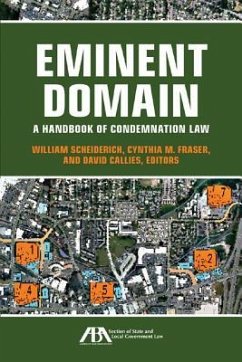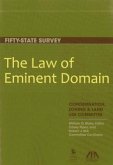Eminent domain has a long and distinguished legal history, dating from the first limits on sovereign power in the Magna Carta. Just compensation is a newer concept, and court decisions such as Kelo v. New London make the exercise of eminent domain controversial. Can government condemn property to increase its tax base? Can the state transfer property from one private owner to another for incidental public benefit, and does this constitute "public use"? While eminent domain traditionally was used to acquire property for roads, waterways, defense installations, government and public buildings, and the interstate highway system, it has recently been a favored tool in developing urban areas, creating shopping malls, and building big-box retail stores. Eminent Domain: A Handbook of Condemnation Law is written by leaders in the field and will introduce general practitioners working for condemnors and property owners alike to the many intricacies of condemnation practice.
Bitte wählen Sie Ihr Anliegen aus.
Rechnungen
Retourenschein anfordern
Bestellstatus
Storno





![Development by Agreement: A Tool Kit for Land Developers and Local Governments [with Cdrom] [With CDROM] Development by Agreement: A Tool Kit for Land Developers and Local Governments [with Cdrom] [With CDROM]](https://bilder.buecher.de/produkte/38/38130/38130555m.jpg)


